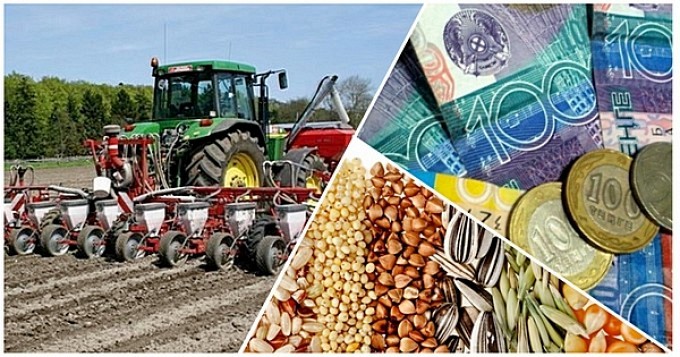
In foreign media, experts are widely discussing the expected rise in prices for pesticides and fertilizers, and their possible shortage in the upcoming agricultural season. The reason is the consequences of the industrial crisis in China and the global energy crisis in other leading countries producing pesticides and mineral fertilizers.
If events develop according to this scenario, according to experts, farmers need to be prepared for a noticeable increase in the cost of the sowing campaign in 2022.
If we consider the dynamics of prices in Kazakhstan in the current year, we can observe the following. For instance:
- ammophos, which cost 140 thousand per ton in spring, costs 335 thousand tenge in October (an increase of more than 2 times);
- the price of diesel fuel in the spring was 188 tenge per liter (cheaper - 165 tenge), in October the fuel on the market costs up to 330 tenge per liter. At the same time, the Ministry of Energy of the Republic of Kazakhstan considers a fair minimum price for diesel fuel to be 260-270 tenge per liter (above the level of spring prices by 40%);
- seed prices are expected to rise compared to 2021;
- from January 1, 2022, it is planned to increase the minimum wage to 60 thousand tenge (+ 41%).
The increase in costs for these items will significantly affect the cost of the upcoming sowing campaign. Most of the income received in the fall and winter of this year, grain producers will be forced to spend in the spring to finance the upcoming VPR. For example, the cost per hectare (without taking into account the financial burden) for the production of wheat can be more than 100 thousand tenge with 70 thousand tenge per hectare in 2021. And even with a favorable harvest in the coming year, the price of wheat on the domestic market at such costs should not be lower than current prices (105-120 thousand tenge, depending on the quality).
One of the real opportunities to mitigate the impact of the increase in the cost of the upcoming VPR is for grain producers to sell the 2021 crop at fair market prices. But the policy pursued in Kazakhstan to regulate the export of agricultural crops (quotas), aimed, among other things, at loading the capacities of processing enterprises, leads to a distortion of domestic prices. From such actions, our grain producers may lose the income that they desperately need to prepare for the upcoming sowing campaign.
Therefore, in our opinion, it is now important to take a number of urgent decisions in time to support grain producers, namely:
- refrain from restricting trade and interfering with market pricing;
- if possible, prolong the current financial obligations of grain producers;
- to find resources and significantly (at least 2 times) increase the volume of lending for the implementation of VPR and the budgets of subsidy programs. At the same time, to ensure effective control over the unconditional and timely allocation of all due subsidies to grain producers.
Otherwise, in the coming year we can expect a significant reduction in production due to a massive decline in the solvency of grain producers, which will lead to real threats to the country's food security. Correcting this situation will require enormous resources and years to restore previously achieved production volumes.